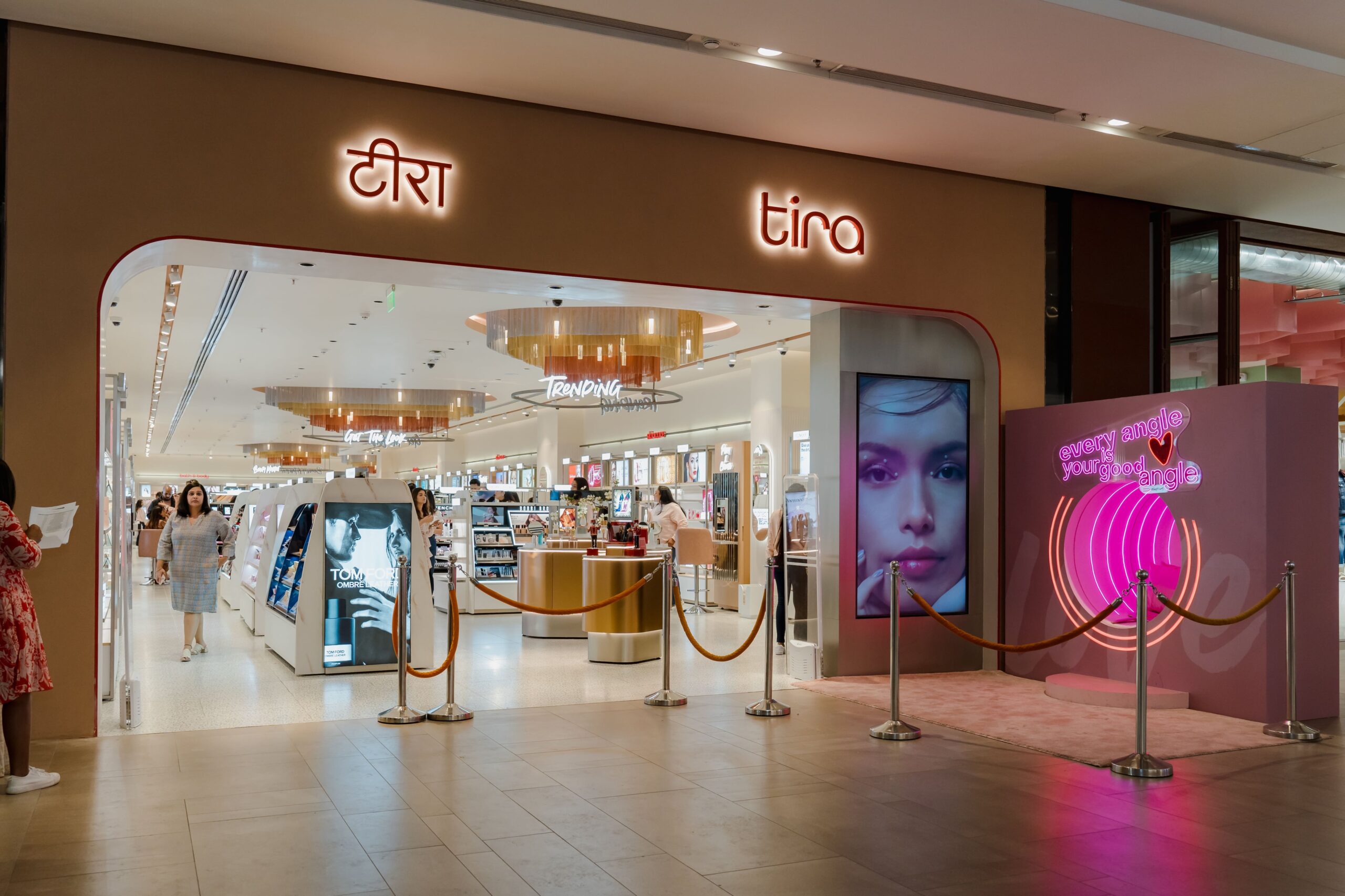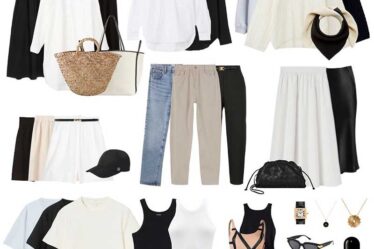
In March, Rihanna came out of her almost decade-long stage hiatus for a live performance at one of India’s most prolific celebrations – the wedding of Anant Ambani to Radhika Merchant in Jamnagar, India. (Anant is the son of Reliance Industries’ owner Mukesh Ambani and one of the heir apparents to the multi-industry conglomerate, alongside his siblings Akash and Isha.) But just as Rihanna left the country days later, Nykaa Beauty, one of India’s leading online beauty retailers, announced the celebrity’s exclusive brand debut in the country. The news came as a surprise to many in the beauty world since Reliance incubated competitor Tira Beauty, run by Isha Ambani, just a year ago. Moreover, insiders know Fenty as a Sephora brand and Reliance Retail Ventures inked a deal to acquire Sephora India from Arvind Fashions last November.
Nykaa was a strategic alliance for the celebrity-owned brand. Several buzzy labels including Millie Bobby Brown’s Florence by Mills, Sol de Janeiro, Charlotte Tilbury and The Ordinary have chosen the 12-year-old online retailer for their exclusive debut in the country. With the addition of Fenty, the race for exclusive international launches continues to intensify. But young Tira isn’t too behind. In just a year, it has secured exclusive launches of brands like Laura Mercier, Allies of Skin and an exhaustive K-beauty lineup including Blessed Moon and Patchology. It has also grown its brick and mortar footprint to 12 stores across Indian cities like Pune, Bengaluru, Chennai, Hyderabad, as well as Mumbai and Delhi.
Alongside Nykaa and Tira’s greater ambitions, international brands’ willingness to enter the country is ever pronounced, given global outlooks in other regions like China. Plus, customers are ready for new beauty innovations, products and activations.
“Thanks to more Indian travellers visiting global cities, the local consumer has become well affiliated with global brands even if they aren’t available in the country yet. This has created a large pool of consumers before brands even set foot in the country,” said Simar Deol, foresight analyst at The Future Laboratory.
Similarly, thanks to robust digital strategies inclusive of social media campaigns and influencers, brands have developed global reach before having a physical footprint in India. Case in point, Laura Mercier launched on Tira’s e-commerce site in December 2023, followed by a DTC boutique storefront in Phoenix Palladium Mall in Mumbai in March. Even niche brands like Maison Margiela launched a pop up in the Jio World Drive Mall in January before developing a storefront.
Although premium platforms such as Myntra, Amazon, Tata CliQ Pallette, Purplle and Kult are also part of the beauty retail race in India, they often miss out on exclusive launches due to the heft of Nykaa, Sephora and now, Tira. But given the country’s depth and breadth, international brands have to weigh what these retailers can actually offer in terms of overall exposure, brand awareness and geographic reach.
The MVPs
When The Ordinary launched in India in 2022, it went with Nykaa because of its cross country reach, customer service and moments like the Pink Sale, an internally created discount and promotional holiday, said Nicola Kilner, co-founder and chief executive of The Ordinary.
“We conducted a market review to compare all the players, and for us, it definitely felt like Nykaa was the best partner to launch with at the time,” said Kilner. “They believe in telling the brand story and care about brand education.”
Nykaa currently boasts the largest assortment of premium brands in the beauty category in the country — over 250 lines out of its 6,250 total assortment. According to Anchit Nayar, executive director and CEO of Nykaa Beauty, this segment of the platform’s business is growing with a third of its gross merchandise value coming from premium and prestige beauty brands. The platform’s cross border store, which allows shoppers to directly order from vendors such as Fenty and CTZN Cosmetics (inclusive of shipping and duty charges), enables brands to test the market before signing on in a full capacity, though most eventually do. Dr. Barbara Sturm launched with the cross border global store in 2021 and became part of Nykaa’s mainline offering last year. The platform has more than 22 million consumers that visit the app more than 50 times a year, making it the most frequented beauty app. That kind of consumer data when testing the market has become pure gold for brands.
To date, The Ordinary is ranked as the top skincare brand in Nykaa’s luxe category, thanks to the success of its Niacinamide 10% + Zinc 1% product, which is sold every minute on the platform. Although The Ordinary’s two-year term exclusive contract with Nykaa is up for renewal in June, it will likely roll over into the summer, said Kilner.
Tira, meanwhile, sells roughly 800 brands on its e-commerce platform. Though smaller today, with the might of Reliance’s network and a strategic alliance with Sephora, that is expected to change.
Biju Kassim, CEO of Shopper Stop’s beauty division (the distributor responsible for bringing Tom Ford Beauty and Nars into the country), said Tira will likely leverage India’s largest luxury mall, Jio World Plaza, to encourage brands to launch within its multi-brand retail environment. Prada Beauty, for one, is expected to debut its first standalone boutique in the country via the mall this year. Moreover, with Sephora in play, Sanjay Sharma, CEO of Shiseido India, said the company’s brick and mortar layout, which extends beyond metro centres in tier 2 cities like Chandigarh, Pune and Ahmedabad, gives Tira more reach.
Tira’s omnichannel approach is already a new experience for Indian shoppers. The platform’s stores are immersive, with shoppers flocking to its locations for its iPad beauty advisers that offer skin analysis and product recommendations, Dyson blow dry bars and digital tools that tell customers their fragrance personalities. Though seemingly common in other parts of the world, these tech innovations are not mainstream in Indian beauty retail.
The Exclusivity Conundrum
While Nykaa and Tira battle it out over exclusives in the market, Kadambari Lakhani, director of omnichannel distributor platform, Baccarose warns that limited exposure can hinder a brand’s growth potential longer term. Baccarose introduced Bare Minerals, Shiseido and Laura Mercier to India.
Experts argue that new brands entering the market will benefit from being seen. As a vast country with a growing number of affluent shoppers outside of Mumbai and Delhi and in places like Coimbatore, Haridwar and Thrissur, beauty labels need to reach shoppers at every point of possible sale.
“How else do you acquire new customers?” said Deepika Gehani, brand consultant and co-founder of Genesis Luxury. ”At the end of the day, a brand needs to be where the audience is.”
Kassim added, “In Europe or America where partners have 500, 700 or 1,000 stores, exclusivity makes sense. But in India, when there are 10, 50 or 100 stores, going exclusive doesn’t, because India is much bigger.”
Sign up to The Business of Beauty newsletter, your complimentary, must-read source for the day’s most important beauty and wellness news and analysis.



